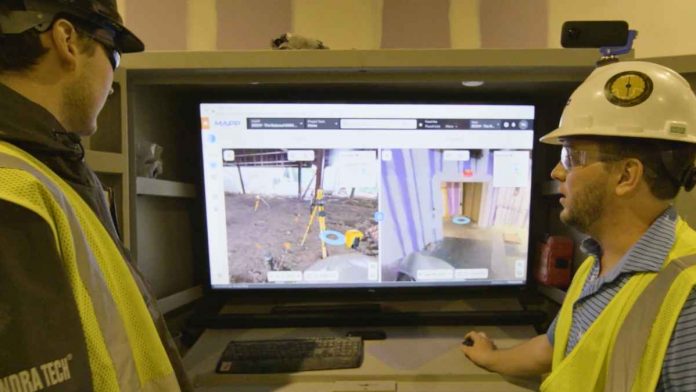The construction industry is experiencing a remarkable transformation with the integration of reality capture technology, a powerful tool that is revolutionizing building projects across the globe. This article explores the various ways in which technology, such as reality capture construction, can reshape the cost-effectiveness of construction practices on an international level.
Reducing Project Overheads Worldwide
Reality capture technology significantly reduces project overheads in construction projects around the world. This reduction is achieved through the technology’s ability to streamline data collection and processing, eliminating the need for extensive manual surveys and measurements. This efficiency not only cuts down on the time required for these tasks but also minimizes errors, regardless of the project’s location. Fewer errors mean less rework, which is a common cause of inflated project costs worldwide.
Additionally, the technology’s capacity to provide detailed and accurate data aids in precise material ordering and utilization, further reducing wastage and unnecessary expenses on a global scale. These aspects collectively contribute to a substantial decrease in overall project costs, making reality capture technology a valuable asset in economic construction management, no matter where in the world the project is located.
Streamlining Project Management Across Borders
This technology enables project managers to oversee project progress more effectively by providing real-time, accurate site data, regardless of where they are located. It facilitates better coordination between different teams and phases of the project, ensuring that all parties are working from the most current information, even if they are continents apart. This level of coordination reduces the risk of delays and miscommunication, enhancing project management efficiency on a global scale.
Enhancing Decision Making Globally
Reality capture technology greatly enhances decision-making in construction projects across the world. By providing comprehensive, accurate data about the construction site, stakeholders can make more informed choices about design, resource allocation, and project timelines, no matter where they are situated. This data-driven approach reduces the likelihood of costly mistakes and reworks on a global scale. It also enables quick adaptation to changing conditions or unforeseen challenges, ensuring that decisions are made swiftly and based on the most current information. This ability to make well-informed decisions rapidly is crucial for maintaining project momentum and adhering to budgets and schedules, regardless of the project’s location.
Improving Sustainability and Green Building Practices Worldwide
Reality capture technology plays a vital role in advancing sustainability and green building practices within the construction industry, regardless of the project’s global location. This technology enables construction teams to gather precise data on site conditions and environmental factors, which is crucial for making sustainable decisions worldwide.
One of the key aspects of sustainability is minimizing environmental impact. Reality capture technology aids in this by providing insights into the site’s existing conditions, such as terrain, vegetation, and natural resources, regardless of where the project is located. They can plan construction activities to avoid sensitive areas or implement erosion control measures effectively, reducing soil erosion and preserving local ecosystems, regardless of the project’s global destination.
Facilitating Global Client Communication and Transparency
The technology enhances communication with clients by providing visual progress reports and realistic project visualizations, regardless of the client’s location anywhere in the world. This transparency builds client trust and satisfaction, fostering better relationships and a clearer understanding of project progress on a global level.
This technology allows for the creation of detailed, visual representations of the project’s progress, providing clients, no matter where they are in the world, with an easily understandable view of the development. This real-time sharing of information fosters a transparent working relationship, where clients are kept informed and can provide timely feedback, regardless of their global location. This enhanced communication and transparency ultimately lead to stronger client relationships and increased satisfaction with the project outcome, no matter where in the world the project is located.
Conclusion: A Global Impact
The economic advantages of reality capture technology in construction are clear and have a global reach. From reducing labor costs to enhancing overall project management, this technology is essential for modern, cost-effective building projects worldwide. Its role in promoting sustainability, improving decision-making, and facilitating transparent client communication knows no geographical bounds. Implementing reality capture in construction projects is a transformative strategy that can lead to more efficient and successful building projects on a worldwide scale, making it a global evolution in the construction industry.
